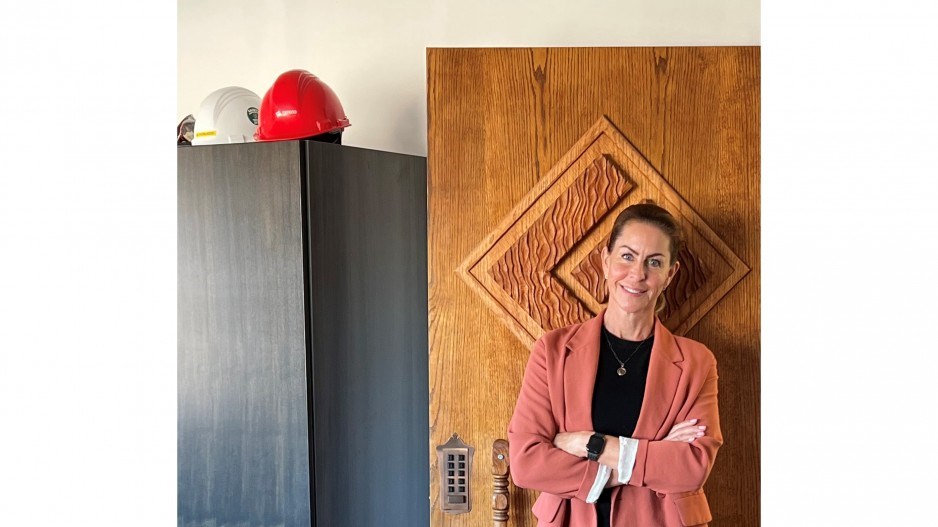Megan Owen-Evans is on a mission to make a difference in her industry, community, and country.
For her, ‘making a difference’ is more than some new-age slogan: Owen-Evans is driven by a desire to improve lives by giving back in ordinary – and extraordinary – ways.
As president of Fibreco Export Inc. one of the world’s largest wood biomass terminals, Owen-Evans is a leader in British Columbia’s waterfront workforce and a champion for women, minorities, and other underrepresented groups.
“It pains me when I see people being treated differently because of their sexual orientation, their gender, their race, their religion. I just inherently do not believe in that at all,” she says.
Owen-Evans, 49, knows what discrimination feels like. More than 25 years ago, she started working on the waterfront as a labourer, sweeping floors and doing every entry-level job there was.
“It wasn't always easy,” she explains. “Things happened that were totally inappropriate, things that just aren’t acceptable today. There was very much an open forum for people to be bullies and for people to be rude. It was a tough environment, for sure.”
In a male-dominated industry, the environment was particularly tough for women. Still, Owen-Evans persevered, climbing the corporate ladder and breaking barriers. However, she doesn’t hesitate to give credit to the great deal of male mentorship that assisted in getting her to where she is today.
“Truthfully, I don’t think I ever thought I'd still be doing it 25 years later, but it's been an amazing career for me.”
Owen-Evans is working to change the culture and encouraging other women, minorities, Indigenous Peoples, and those with different abilities to consider careers on the waterfront. Owen-Evans is a key member of the Waterfront Diversity, Equity and Inclusion (DEI) Council, whose mandate is to transform B.C.'s waterfront workforce and leadership by fostering diversity, equity, and inclusion.
“Over the years, we have made progress, but to this day, there's still not enough female representation on the waterfront,” she describes. “There just aren't even the female applicants to try to fill that void. There's a gap in education about what we do and the incredible opportunities that exist.”
The Waterfront DEI Council includes representatives from more than 10 of the largest terminal employers and operators in British Columbia.
Through regular audits, employee surveys and self-assessments, the Waterfront DEI Council is creating more equitable and inclusive workplaces, ensuring everyone can feel welcome. A key priority is allyship, awareness, and education, which identifies discrimination and bias in the workplace while advocating for social groups that are often subjected to unfair practices.
“I absolutely see the Waterfront Diversity, Equity and Inclusion Council as a platform to start educating people,” says Owen-Evans. “I think we have the formula for change. It’s just putting the pieces together to lay out the road map so that we can get those people in on the ground floor and progressing forward.”
Maksim Mihic, Chair of the Waterfront DEI Council, and CEO and General Manager of DP World (Canada) Inc., calls Owen-Evans a trailblazer for people who are underrepresented in B.C.’s maritime industry.
“Equity and inclusion are about more than our workplaces. This is helping to create stronger communities,” Mihic said. “People are our most valuable asset. Megan Owen-Evans knows that and is making measurable change by giving back.”
Giving back is nothing new for Owen-Evans. Nearly a decade ago, she recognized her ability to change lives when she donated one of her kidneys to someone she had never met. Now, she is being evaluated as a potential liver donor, which would save another life.
“I just feel that my health is a gift, and you have got to do what you can for people. If you see somebody drowning, you jump in and help. It’s fulfilling to know you have done something to give someone a life they wouldn’t have ordinarily had.”
While organ donation is clearly different from workplace equity, the common link is Owen-Evans, a woman driven by her values.
“To me, my primary value is about treating everybody as exceptionally as you can. I’m trying to help people, not hinder them. There’s an obligation as a human being to help one another. At the end of the day, I’m super proud of my career, but I hope I’m remembered for how I have helped people.”




